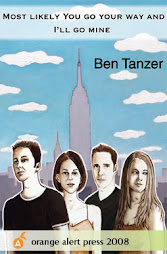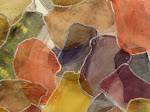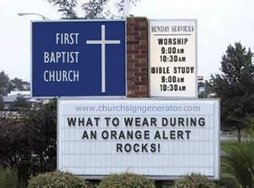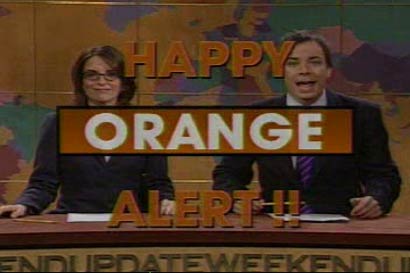
Pete Anderson
Promotion, self or otherwise, has been on my mind lately. How do you promote yourself, especially in times like these? First you will have to decide what you have to promote, and to whom this can be marketed. For a short story writer your stories, published or unpublished are your products. Through a blog you can gain a small audience and direct people to where you have been published. It's a resource, a tool, a method to communicate and inform. Yet more than just self-promotion, many writers are blogging about what their friends and fellow writers are doing. They are promoting others and in turn drawing more attention and traffic to their own blogs and ultimately their own work.
Joliet's Pete Anderson is the man behind Pete Lit, which he start back in May of 2003. He started it to share his thoughts and writing and all the randomness of his life. Over the years his blogging and writing has improved and he has gained a fine reputation in both areas.
Joliet's Pete Anderson is the man behind Pete Lit, which he start back in May of 2003. He started it to share his thoughts and writing and all the randomness of his life. Over the years his blogging and writing has improved and he has gained a fine reputation in both areas.
Recently, Pete was kind enough to answer a few of my questions.
Orange Alert (OA): As a writer and a prolific blogger, why do you feel it is important for writers to maintain blogs, be working, promotion, or anything else?
Pete Anderson (PA): With over 100,000 books published every year, writers have to promote their books on their own, in every conceivable manner, to even have the slightest chance at recognition. And with passionate but cash-strapped indie publishers which have minimal or non-existent marketing budgets, it's even more critical for the author to do so. As a writer it's simply not acceptable to expect your publisher to do all of that work for you.
OA: Your blog is not just about you, but you also promote the work of others. Do you feel an obligation to balance self-promotion with promoting others?
PA: I love promoting the work of others whom I genuinely admire, both because I think they totally deserve it and because they're probably not getting as much exposure as they should. For the most part great literature flies far below the radar of the general public, and if I can reach just half a dozen readers and put in a good word for a book I just read and loved, it's more than worth my time. And in a way, promoting others is in itself an act of self-promotion. Because every time I hype Ben Tanzer, the unspoken understanding is that he'll return the favor. However, though he's been very good about doing so thus far, if he keeps cranking out books at his current pace or gets too big for his britches, I might just have to get our unwritten agreement put in writing by a very shrewd attorney.
OA: The first time I saw you read you read this elaborate historical piece called 'Mercy Day'. How much research went into that piece, and how much time do you typical spent researching before you write?
PA: First off, thanks for recognizing that story, which I never really thought of as "elaborate", though I guess a 3,000-word story with four first-person narrators and a fifth third-person narrator would probably qualify as such. Second, this is the right time to give props to Nick Ostdick and RAGAD, not just because he published the story and hosted that reading, but also because I know he'll return the hype when I most need it. Lastly, the only research that went into the story was my reading of Anthony Hatch's book Tinder Box: The Iroquois Theatre Disaster 1903, which captivated me so much that I was all but compelled to write a story narrated by the disaster's survivors. I try to research as much as I can (although excessive research can easily interfere with the actual writing itself) not because I want to perfectly replicate the historic al record, but because I want it to be just accurate enough to not turn off a reader who may be better educated on a subject than me. As a reader, nothing irritates me more than a fictional story that gets some very basic facts flat-out wrong. A bit of research goes a long way toward avoiding that.
OA: Do you feel there is a difference between being published on-line and being published in print? Is one better or more valid than the other?
PA: The two are equally valid. At first I looked down on online publishing, but after a hundred rejections from print journals I realized that a) online journals publish more often and aren't bound as much by cost considerations, and thus accept a lot more stories; b) online journals have the potential to reach infinitely more readers than print journals, most of which have circulations at best in the low hundreds; and c) online journals accept submissions electronically, which is infinitely easier than schlepping manila envelopes down to the post office to submit to print journals, most of which only accept submissions by mail. For those reasons I've really come around to online journals. But there's still that certain something about seeing your story appear in good old-fashioned perfect-bound print, which is why I still submit to those old dinosaurs every now and then.
OA: How do you deal with rejection? We all know it's a part of writing, but what is your trick to coping with it all?
PA: Rejection really used to bother me (in fact, I was genuinely surprised that my very first story didn't win the Glimmer Train contest I entered it in, although looking back and re-reading the story today, I can totally see why - it's an embarrasing piece of crap) but I eventually realized what a numbers game getting published is, and what overwhelming meager odds are involved. So I cope by not worrying about it at all - when I send out a story I usually forget all about it and just assume it will be rejected. Then when the rare acceptance comes, it's a really pleasant surprise. And when a rejection comes, I file it with all the others and move on.
OA: What's next for Pete Anderson?
PA: I'm working on a new novel, The Night, based on the Morphine album of the same name; trying to find a home for my story chapbook This Land Was Made For You and Me, which I might end up self-publishing in a handmade limited edition; and contemplating the fourth draft of my novella Wheatyard. All that, plus remaining gainfully employed and being a good husband and father. Each is equally challenging.
Bonus Questions:
OA: What is your favorite blog to visit?
PA: Why, What To Wear During an Orange Alert? of course! (There's that reciprocal hype thing again.) Some of my favorite litblogs are Bookninja, Bookslut, Ward Six, Edward Champion's Reluctant Habits and the various writer blogs - Tanzer, Ostdick, Tim Hall, etc. All of them are very worthy of the time your employer is paying you for.
OA: What type of music do you enjoy and who are a few of your favorites?
PA: Indie rock in all its various guises. Some of my faves past and present include Morphine (the fact that I'm writing a book about one of their albums only hints at my ardor for the band), Joel R.L. Phelps and the Downer Trio, Tom Waits, the Mountain Goats, Yo La Tengo, the Pogues, the Feelies...
And what, no coffee question? Though you didn't ask I'll answer it anyway - Chicago's very own and very phenomenal Intelligentsia Coffee. I regularly buy their beans and make an Americano at home every day, which is ten times better and ten times cheaper than a certain voracious chain that seems intent on having a location on every street corner in the civilized world.
For more information on Pete Anderson you can visit his blog Pete Lit.
Orange Alert (OA): As a writer and a prolific blogger, why do you feel it is important for writers to maintain blogs, be working, promotion, or anything else?
Pete Anderson (PA): With over 100,000 books published every year, writers have to promote their books on their own, in every conceivable manner, to even have the slightest chance at recognition. And with passionate but cash-strapped indie publishers which have minimal or non-existent marketing budgets, it's even more critical for the author to do so. As a writer it's simply not acceptable to expect your publisher to do all of that work for you.
OA: Your blog is not just about you, but you also promote the work of others. Do you feel an obligation to balance self-promotion with promoting others?
PA: I love promoting the work of others whom I genuinely admire, both because I think they totally deserve it and because they're probably not getting as much exposure as they should. For the most part great literature flies far below the radar of the general public, and if I can reach just half a dozen readers and put in a good word for a book I just read and loved, it's more than worth my time. And in a way, promoting others is in itself an act of self-promotion. Because every time I hype Ben Tanzer, the unspoken understanding is that he'll return the favor. However, though he's been very good about doing so thus far, if he keeps cranking out books at his current pace or gets too big for his britches, I might just have to get our unwritten agreement put in writing by a very shrewd attorney.
OA: The first time I saw you read you read this elaborate historical piece called 'Mercy Day'. How much research went into that piece, and how much time do you typical spent researching before you write?
PA: First off, thanks for recognizing that story, which I never really thought of as "elaborate", though I guess a 3,000-word story with four first-person narrators and a fifth third-person narrator would probably qualify as such. Second, this is the right time to give props to Nick Ostdick and RAGAD, not just because he published the story and hosted that reading, but also because I know he'll return the hype when I most need it. Lastly, the only research that went into the story was my reading of Anthony Hatch's book Tinder Box: The Iroquois Theatre Disaster 1903, which captivated me so much that I was all but compelled to write a story narrated by the disaster's survivors. I try to research as much as I can (although excessive research can easily interfere with the actual writing itself) not because I want to perfectly replicate the historic al record, but because I want it to be just accurate enough to not turn off a reader who may be better educated on a subject than me. As a reader, nothing irritates me more than a fictional story that gets some very basic facts flat-out wrong. A bit of research goes a long way toward avoiding that.
OA: Do you feel there is a difference between being published on-line and being published in print? Is one better or more valid than the other?
PA: The two are equally valid. At first I looked down on online publishing, but after a hundred rejections from print journals I realized that a) online journals publish more often and aren't bound as much by cost considerations, and thus accept a lot more stories; b) online journals have the potential to reach infinitely more readers than print journals, most of which have circulations at best in the low hundreds; and c) online journals accept submissions electronically, which is infinitely easier than schlepping manila envelopes down to the post office to submit to print journals, most of which only accept submissions by mail. For those reasons I've really come around to online journals. But there's still that certain something about seeing your story appear in good old-fashioned perfect-bound print, which is why I still submit to those old dinosaurs every now and then.
OA: How do you deal with rejection? We all know it's a part of writing, but what is your trick to coping with it all?
PA: Rejection really used to bother me (in fact, I was genuinely surprised that my very first story didn't win the Glimmer Train contest I entered it in, although looking back and re-reading the story today, I can totally see why - it's an embarrasing piece of crap) but I eventually realized what a numbers game getting published is, and what overwhelming meager odds are involved. So I cope by not worrying about it at all - when I send out a story I usually forget all about it and just assume it will be rejected. Then when the rare acceptance comes, it's a really pleasant surprise. And when a rejection comes, I file it with all the others and move on.
OA: What's next for Pete Anderson?
PA: I'm working on a new novel, The Night, based on the Morphine album of the same name; trying to find a home for my story chapbook This Land Was Made For You and Me, which I might end up self-publishing in a handmade limited edition; and contemplating the fourth draft of my novella Wheatyard. All that, plus remaining gainfully employed and being a good husband and father. Each is equally challenging.
Bonus Questions:
OA: What is your favorite blog to visit?
PA: Why, What To Wear During an Orange Alert? of course! (There's that reciprocal hype thing again.) Some of my favorite litblogs are Bookninja, Bookslut, Ward Six, Edward Champion's Reluctant Habits and the various writer blogs - Tanzer, Ostdick, Tim Hall, etc. All of them are very worthy of the time your employer is paying you for.
OA: What type of music do you enjoy and who are a few of your favorites?
PA: Indie rock in all its various guises. Some of my faves past and present include Morphine (the fact that I'm writing a book about one of their albums only hints at my ardor for the band), Joel R.L. Phelps and the Downer Trio, Tom Waits, the Mountain Goats, Yo La Tengo, the Pogues, the Feelies...
And what, no coffee question? Though you didn't ask I'll answer it anyway - Chicago's very own and very phenomenal Intelligentsia Coffee. I regularly buy their beans and make an Americano at home every day, which is ten times better and ten times cheaper than a certain voracious chain that seems intent on having a location on every street corner in the civilized world.
For more information on Pete Anderson you can visit his blog Pete Lit.
+by+Nick+Volkert).jpg)





















No comments:
Post a Comment